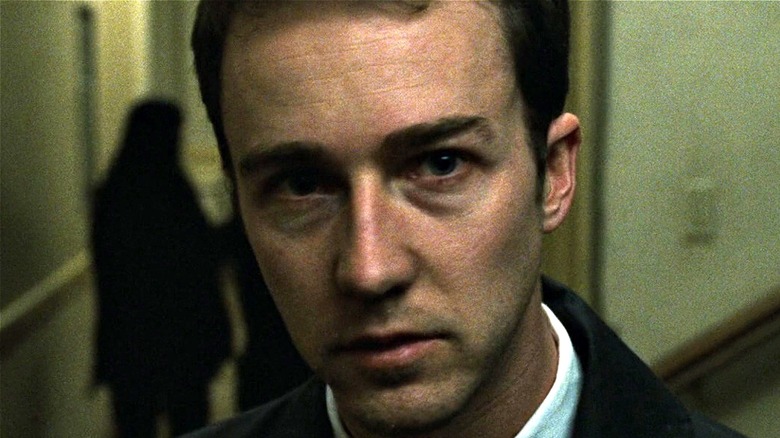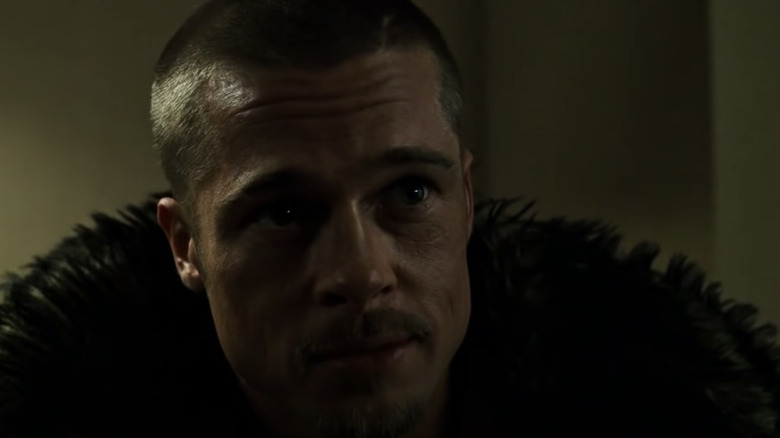The Death In Fight Club That Makes No Sense
It's hard to imagine over 20 years later, but "Fight Club" wasn't received well when it was initially released in 1999. David Fincher's fourth directorial effort made just $37 million at the domestic box office on a $63 million budget. While it did turn a profit thanks to international distribution, it landed as a relative dud with American audiences (via Box Office Mojo). As time passed, appreciation grew for the film's black humor and confrontational tone that challenged notions about Generation X's relationship with American consumerism at the turn of the millennium. Add in one of pop culture's most mind-boggling plot twists to tie the entire film together, and "Fight Club" today is well-adored by fans: 96% of audience members on Rotten Tomatoes report enjoying the movie.
"Fight Club" is based on author Chuck Palahniuk's 1996 novel of the same name. Palahniuk has said in the years since Fincher's film released that the movie streamlines his plot more effectively than the novel and makes thematic connections he never thought of (via DVD Talk). One major change made in adaptation was to the story's end; in the book, the unnamed Narrator wakes up in a hospital and wonders whether he has died before employees identify themselves as members of Project Mayhem and imply that Tyler Durden's work continues. The film leaves the Narrator (Edward Norton) and Marla Singer (Helena Bonham-Carter) together on a skyscraper as buildings around them explode; while the Narrator says he's going to be fine, one major event that happens just beforehand implies otherwise.
Fight Club's Narrator unexpectedly shoots himself after the film's pivotal twist
At the climax of "Fight Club,' the film's unnamed Narrator realizes that Tyler Durden (Brad Pitt) does not actually exist: in fact, he is Tyler Durden, and Tyler Durden is him. The Narrator experiences life as Tyler while the Narrator is sleeping, which is why characters throughout the film, like Marla, act so frequently concerned and frustrated about the Narrator's erratic behavior. As the Narrator races to foil Project Mayhem's plan to destroy buildings, Tyler confronts him, eventually holding the Narrator hostage with a gun as time runs out before explosives go off. However, the Narrator realizes that since Tyler is him, he is the one really holding the gun. The Narrator ultimately shoots into his own mouth to rid himself of Tyler's presence permanently. This leaves the Narrator with a gaping wound in his neck, even though Tyler is shown with a hole in the back of his head just before he dissipates.
"Fight Club" ends on an ambiguous note, with the Narrator insisting to Marla that he is finally feeling okay, even though he just shot himself and they stand in a skyscraper among buildings that Project Mayhem has just destroyed. The symbolism behind the Narrator ridding himself of Tyler is clear, but it's hard to reconcile the notion that the Narrator could shoot himself and live to tell the tale. It's also unclear how Tyler can die while the Narrator survives the gunshot, and the differences in wounds between the two is never accounted for.

